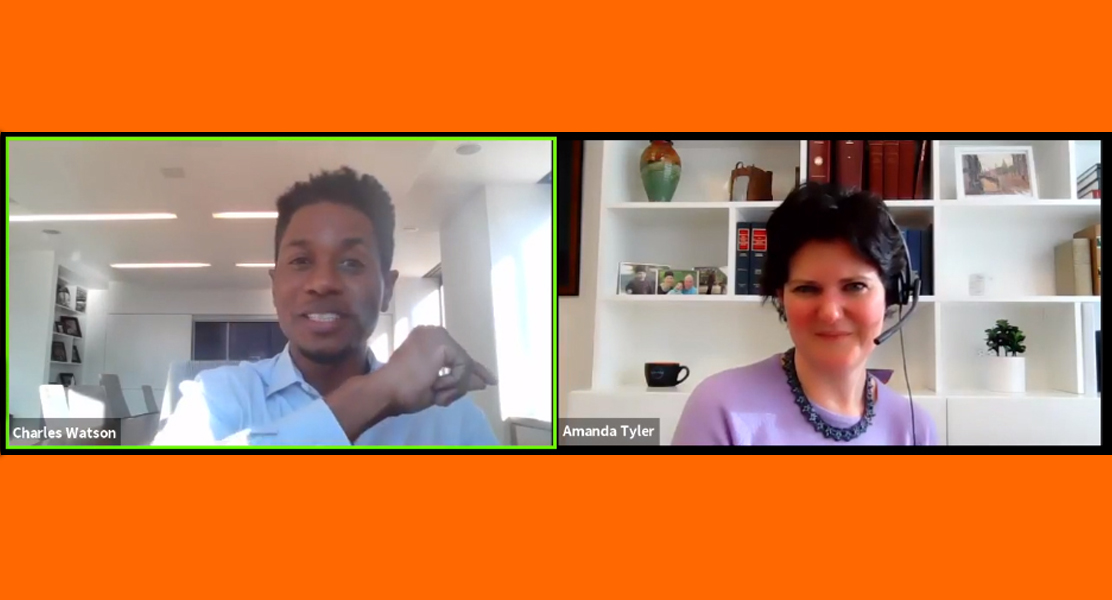BJC warns against politicizing religious beliefs, sermons of candidates: ‘No religious test means no religious test’

In a Facebook live conversation, BJC Executive Director Amanda Tyler and Director of Education Charles Watson Jr. discussed the unique religious liberty concerns that can arise when a minister is a candidate for public office.
While candidates should always expect past comments to be scrutinized by their opponents, they emphasized, religious expressions such as sermons should not be politicized. Doing so risks running afoul of the clause in Article VI of the U.S. Constitution, which explicitly assures that there is no religious test for office.
Specifically, the BJC conversation focused on recent attack ads aimed at the Rev. Raphael Warnock, who is a Baptist minister and a candidate for U.S. Senate in Georgia. The ads pull from his sermons in a manner that questions both his patriotism and, remarkably, his Christian faith.
Word & Way’s Brian Kaylor reports on the conversation and provides this helpful summary of a point I found especially important: Sermons are not like other speech.
Tyler, who noted she had worked on political campaigns before coming to BJC, agreed that while candidates expect opponents to look at past comments, treating sermons this way seems more problematic. Mentioning that Christians believe the Holy Spirit inspires a pastor while preaching, she said that “there is something different about giving a sermon than giving a speech.” And she believes that religious understanding “needs to be respected.”
“When you think about sermons in particular, it’s different to me than a speech that you might give to a one-time audience or a paper that you wrote,” she explained. “The idea of pastoring a church is, you know, you’re called to that position. So, for a long period of time you develop a relationship with the people in the church. You are leading the church in a certain spiritual direction. And so, to take even one sermon — let alone one line from one sermon — out of that larger relationship in context of a pastor and their church, it can be very misleading.”
“And to fail to think about that context, I think, can lead us in a direction that really threatens religious freedom,” she added, “and threatens even that concept of a religious test. That concept of imposing in some way a religious test for public office, to say that some religious view that you hold would somehow disqualify you for public office — as some people have actually said when it comes to Reverend Warnock and his ability to be United States Senator.”
Kaylor also reported on their key discussion of the racial context surrounding the situation:
“We have an African American Baptist minister in Atlanta, Georgia, at Ebenezer Baptist Church. And you’re taking snippets of sermons from this person to use against him politically. I think some of it crosses the line as far as how they’re doing and the dog whistles behind it,” [Watson] said. “That’s the deeper issue.”
“The attacks that are going on Dr. Warnock now about his religious statements are some of the same attacks that were on Martin Luther King, Jr. We’re saying the same words. We’re calling somebody a radical, calling somebody a communist, calling somebody anti-American. Now, 60 years after Dr. King’s death, it’s hard to find somebody that will speak ill of Dr. King, Jr.,” Watson said.
“And I just wish we will learn from our past,” he added.
Just as Supreme Court Justice Amy Comey Barrett’s religious views are not relevant to her ability to serve on the Court (as highlighted by Tyler in this article for Good Faith Media), Warnock’s religious views – and certainly his sermons – make him no more and no less qualified for public office. Whether in a judicial confirmation hearing or campaigning for elected office, opponents should honor that essential, constitutionally drawn line.
As Tyler added in a follow-up tweet: “No religious test means no religious test. Period.”
Watch the entire conversation on BJC’s Facebook page.
At the end, they announced that the 2021 Religious Liberty Essay Scholarship Contest asks high school juniors and seniors to write on this topic. Visit BJConline.org/contest for the details.




